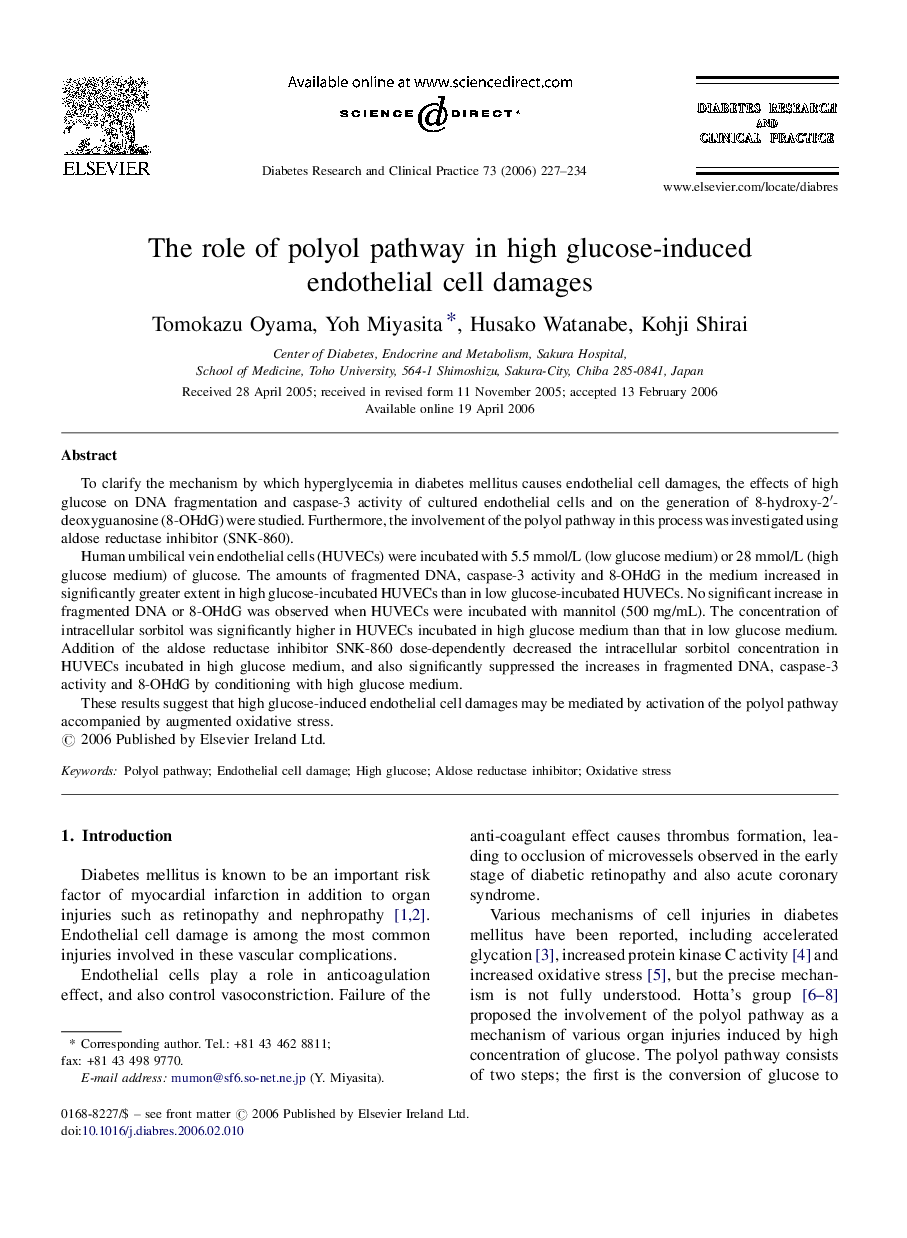| Article ID | Journal | Published Year | Pages | File Type |
|---|---|---|---|---|
| 2798846 | Diabetes Research and Clinical Practice | 2006 | 8 Pages |
To clarify the mechanism by which hyperglycemia in diabetes mellitus causes endothelial cell damages, the effects of high glucose on DNA fragmentation and caspase-3 activity of cultured endothelial cells and on the generation of 8-hydroxy-2′-deoxyguanosine (8-OHdG) were studied. Furthermore, the involvement of the polyol pathway in this process was investigated using aldose reductase inhibitor (SNK-860).Human umbilical vein endothelial cells (HUVECs) were incubated with 5.5 mmol/L (low glucose medium) or 28 mmol/L (high glucose medium) of glucose. The amounts of fragmented DNA, caspase-3 activity and 8-OHdG in the medium increased in significantly greater extent in high glucose-incubated HUVECs than in low glucose-incubated HUVECs. No significant increase in fragmented DNA or 8-OHdG was observed when HUVECs were incubated with mannitol (500 mg/mL). The concentration of intracellular sorbitol was significantly higher in HUVECs incubated in high glucose medium than that in low glucose medium. Addition of the aldose reductase inhibitor SNK-860 dose-dependently decreased the intracellular sorbitol concentration in HUVECs incubated in high glucose medium, and also significantly suppressed the increases in fragmented DNA, caspase-3 activity and 8-OHdG by conditioning with high glucose medium.These results suggest that high glucose-induced endothelial cell damages may be mediated by activation of the polyol pathway accompanied by augmented oxidative stress.
